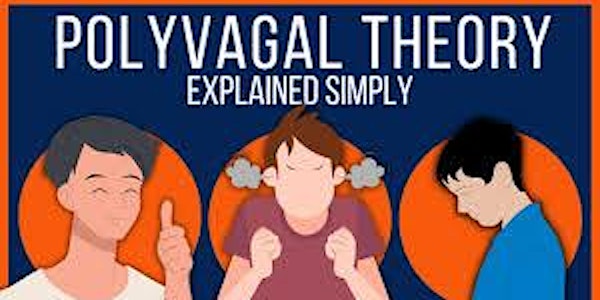
Registrations are closed
Looking forward to meeting you!
Learning about Polyvagal + Trauma Therapy
Join us online to dive into the world of Polyvagal Theory and Trauma Therapy; exploring how our nervous system impacts the healing journey.
Date and time
Location
Online
About this event
Welcome to our online event: Learning about Polyvagal + Trauma Therapy! Join us for an insightful learning session where can explore the world of Polyvagal Theory and it's relationship to T(t)rauma recovery. Discover how understanding the nervous system can help in healing trauma and bringing stability to the body. This event is perfect for anyone interested in mental health, therapy, personal growth or polyvagal and trauma! Sign up now!
What is Polyvagal Theory?
Polyvagal Theory is the exploration and understanding of the role the autonomic nervous system - especially the vagus nerve - in how it influences the regulation of our health and behavior. Vagal knowledge/awareness is especially helpful in navigating mental health and recovery journeys!
In this session we will learn about the 3 organizing principles of Polyvagal + engage in some short exercises that build awareness and attunement.
A short summary of the 3 organizing principles:
- Hierarchy of Responses: Polyvagal Theory suggests that the autonomic nervous system operates on a hierarchical response system to stress and perceived experiences of safety. The hierarchy comprises three distinct neural circuits, each representing different evolutionary stages: The ventral vagal complex (newest circuit): When we perceive safety, this circuit supports social engagement, communication, calming, and connection; The sympathetic nervous system: Engages in 'fight or flight' responses when we perceive threat; And the dorsal vagal complex (oldest circuit): In life-threatening situations, it triggers a 'freeze' or shutdown response, a state of immobilization.
- Neuroception: This is the concept of how our nervous system perceives threats or safety in the environment, often beyond conscious awareness. Neuroception explains how we react to situations based on subconscious cues, without conciously realizing why.
- Co-regulation: This principle focuses on the importance of social interactions and bonding. It suggests that facial expressions, vocalization, listening and physical presence are part of a special "social engagement system" that introduce feelings of safety or danger.
If you're curious to learn more about how this theory applies in mental health strenght or recovery, click the registration link below!